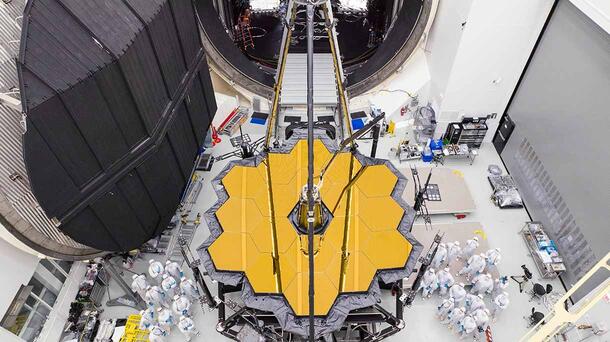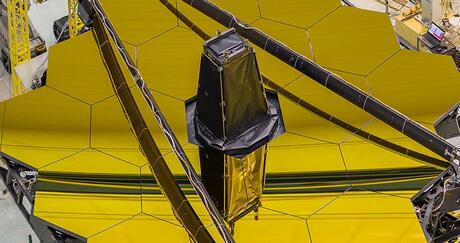NASA’s James Webb Space Telescope effectively launched from French Guiana on Christmas Day last year. The Webb telescope is known to be the largest and most complex observatory ever created, developed to observe and analyze the complex evolution of galaxies and the development of the first stars and planets. L3Harris assembled, integrated, and tested the Optical Telescope Element as well as the Integrated Science Instrument Module, and led testing efforts in a cryogenic vacuum chamber to ensure the telescope would perform well in deep space.
Not only was the Webb telescope the first launch of its kind, but it was also a new beginning for all L3Harris team members involved. According to Sharon Lunt, the lead of image science engineering, who has “grown up with the space landings, seen the early moon landings and first space shuttles,” it was extraordinary to still “be a part of another first.” The program’s novel and revolutionary aspect of space imaging solutions prompted the L3Harris team to take that initial step forward.
From start to finish, L3Harris employees worked on this historic operation for nearly 20 years, alongside roughly 20 additional companies. Their prolonged dedication to the Webb telescope’s advancement was an attribute to its overall achievement. Webb’s highly advanced integration and cutting-edge technology required a group of individuals to embrace a role in unexplored technical areas, and L3Harris stepped up to the plate. James Ellis, Program Manager, described what excited him most about the journey was “the validation of everybody's hard work and how so many people have worked so many years on design, analysis, and tasks integrating the primary mirror and seeing that all come together a million miles away.” The complex and innovative task further motivated the L3Harris team.
Nevertheless, there was no shortage of obstacles faced by the team as they contributed to the development of the largest telescope ever created. The L3Harris team faced unprecedented test protocols within the harshest external environments known to exist. Tony Whitman, whose roles included lead systems integration engineer and cryogenic optical test director, commented on his encounter with the Webb telescope’s trials, mentioning how the team “all worked together to overcome these technical challenges and even work through adversity like Hurricane Harvey right in the middle of the test.” Timeliness of the program was imperative as well and ensuring that all targets were being met on deadline. Bernadette Girvin, senior operational execution schedule project analyst, expressed how “it was an extreme schedule management challenge to have people both at Goddard Space Center in Maryland and in L3Harris and Houston as we were scheduling tasks every day, down to the hour. I have immense personal gratitude to my team that showed up every day to accomplish the tasks at hand.” Overcoming the various difficulties across all team sectors portrays the L3Harris commitment towards diligence.
Throughout the telescope initiative, L3Harris employees built a unique bond both with one another and with the project itself. Many individuals involved believe the teams’ synergy and cooperation were what led to the Webb’s successful result. The collectivist culture and supportive atmosphere pushed each team member to their full potential, as team member and manufacturing engineer John Greico explained, “we had a very diverse team that was very inclusive and collaborative, one that even branched outside of L3Harris. And it took us to a lot of interesting places, that are part of the world history, so it was pretty intriguing and very exciting.” He later emphasized that “the most rewarding aspect was the people.” The invaluable experiences that they shared while manufacturing the most significant infrared-optimized telescope in history were utterly priceless. With more than 100 years of innovation and the expertise of countless L3Harrris engineers, the James Webb Space Telescope features technology that was previously unimaginable and establishes the foundation for the telescopes of the future. As civil and commercial imaging director Brandon Migdal so eloquently puts it, the Webb’s power, along with the contribution from L3Harris, “delivers innovative space imaging solutions that help answer fundamental questions about our universe, so that the next generation can explore further.”

